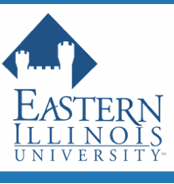Kink and Consensual Non-Monogamy: Understanding Diverse Relationship Dynamics
Preferred Delivery
Virtual
Length of Presentation
100 minutes
Start Date
7-10-2022 3:00 PM
End Date
7-10-2022 4:50 PM
Document Type
Presentation
Abstract
Students engaging in atypical relationship structures such as consensual non-monogamy (CNM) or atypical sexual practices such as BDSM or other kink oriented behavior may face increased ostracization and scrutiny for educators and mental health practitioners based on their sexual identity and practices. Attendees will be introduced to various types of CNM and kink practices and terminology, as well as information regarding historic challenges individuals within the Kink and CNM community face from heteronormative systems. Furthermore, participants will learn about key aspects of affirmative Kink or CNM relationships to distinguish healthy relationships from potentially harmful ones. Fictional case studies will be utilized to highlight these differences.
Description
Description: This presentation will introduce attendees to non-normative sexual identities and relationship dynamics beyond the LGBTQIA+ spectrum, namely consensual non-monogamy (CNM) and Kink. The presenter will define these terms, and they will introduce the attendees to various structures and practices within these communities. The presenter will also review challenges faced by said individuals including historic bias and microaggressions in terms of mental health, justice, and assumed deviancy. Fictional case studies will be utilized to highlight distinctions between healthy and consensual relationships versus maladaptive or abuse ones.
This presentation aligns with the conference themes of diversity, inclusion, and belongingness for marginalized populations. Bias in diagnosis and over-reporting of “abuse” within Kink or CNM relationships exists, and educators can increase their awareness of the relevant factors to address their own bias regarding these groups.
Learning Objective 1: Attendees will be able to express three distinct CNM relationship structures, and how consent and communication flow within said structure.
Learning Objective 2: Attendees will be able to define and express situations of consent and of non-consent.
Learning Objective 3: Attendees will be able to express understanding at least 3 types of Kink practices, and the role power dynamics play within them.
Learning Objective 4: Attendees will understand and be able to express historic and current form of bias or discrimination experienced by members of the Kink or CNM communities, and how that may impact their interactions and relationships in educational settings.
Creative Commons License

This work is licensed under a Creative Commons Attribution-Noncommercial-No Derivative Works 4.0 License.
Kink and Consensual Non-Monogamy: Understanding Diverse Relationship Dynamics
Students engaging in atypical relationship structures such as consensual non-monogamy (CNM) or atypical sexual practices such as BDSM or other kink oriented behavior may face increased ostracization and scrutiny for educators and mental health practitioners based on their sexual identity and practices. Attendees will be introduced to various types of CNM and kink practices and terminology, as well as information regarding historic challenges individuals within the Kink and CNM community face from heteronormative systems. Furthermore, participants will learn about key aspects of affirmative Kink or CNM relationships to distinguish healthy relationships from potentially harmful ones. Fictional case studies will be utilized to highlight these differences.





Speaker Information
Matthew Flinchum is an LPC-Associate and National Board Certified Counselor. He currently practices at Austin Counseling and Trauma Specialists focused primarily on survivors of sexual assault, intimacy, and sexual wellness. Mr. Flinchum is also a doctoral student in the Texas Tech University Counselor Education and Leadership program, and he serves as President-Elect of the Capital of Texas Counseling Association. His research interests include human sexuality, sexual wellness, and the intersection between trauma and sexuality. He is currently pursuing research regarding implicit bias among counselors-in-training toward the Kink and Consensual Non-Monogamy communities. Academically, he teaches as an adjunct professor in the Master of Arts in Counseling program at St. Edward’s University in Austin, TX.